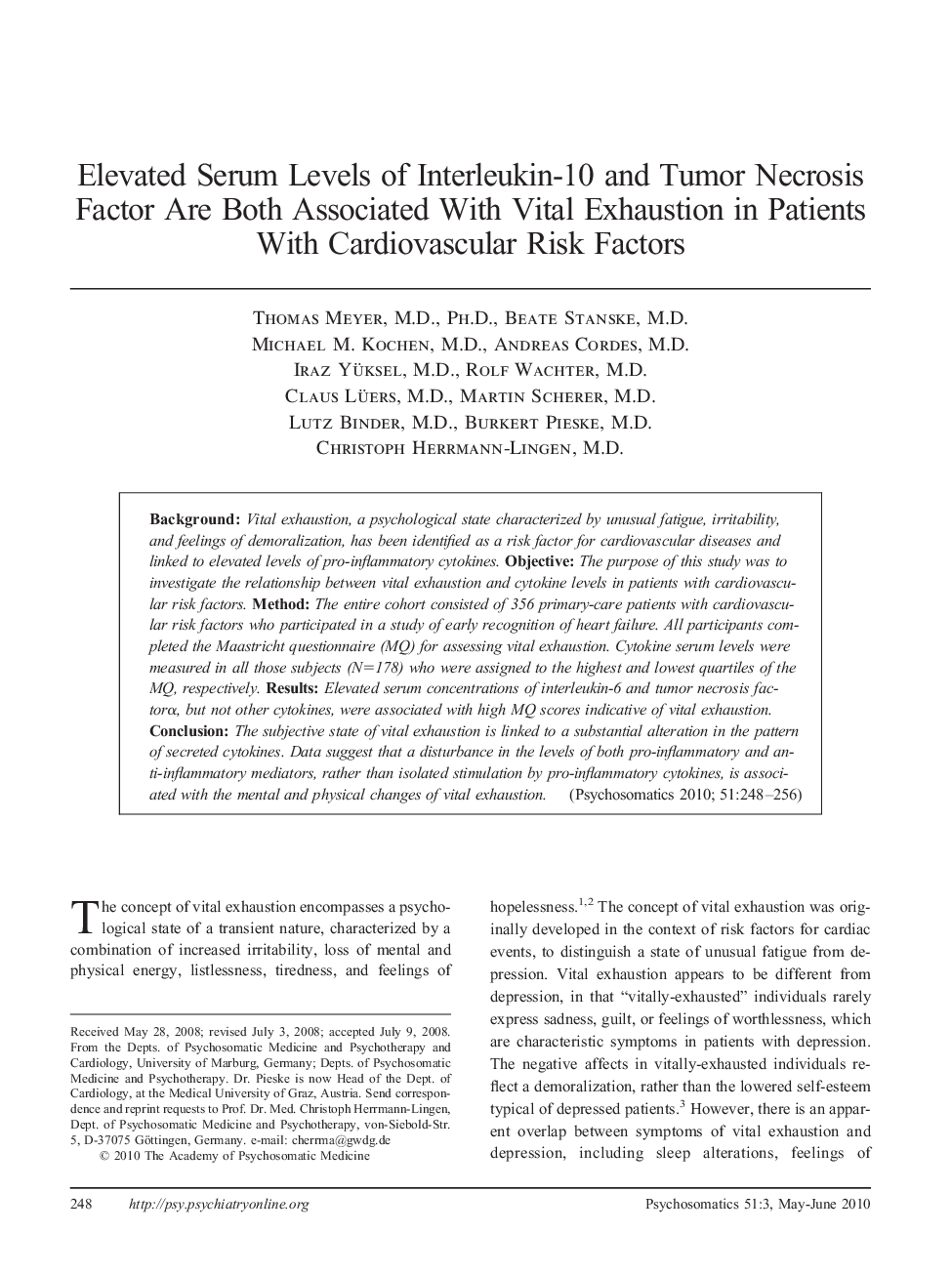| Article ID | Journal | Published Year | Pages | File Type |
|---|---|---|---|---|
| 339350 | Psychosomatics | 2010 | 9 Pages |
BackgroundVital exhaustion, a psychological state characterized by unusual fatigue, irritability, and feelings of demoralization, has been identified as a risk factor for cardiovascular diseases and linked to elevated levels of pro-inflammatory cytokines.ObjectiveThe purpose of this study was to investigate the relationship between vital exhaustion and cytokine levels in patients with cardiovascular risk factors.MethodThe entire cohort consisted of 356 primary-care patients with cardiovascular risk factors who participated in a study of early recognition of heart failure. All participants completed the Maastricht questionnaire (MQ) for assessing vital exhaustion. Cytokine serum levels were measured in all those subjects (N = 178) who were assigned to the highest and lowest quartiles of the MQ, respectively.ResultsElevated serum concentrations of interleukin-6 and tumor necrosis factorα, but not other cytokines, were associated with high MQ scores indicative of vital exhaustion.ConclusionThe subjective state of vital exhaustion is linked to a substantial alteration in the pattern of secreted cytokines. Data suggest that a disturbance in the levels of both pro-inflammatory and anti-inflammatory mediators, rather than isolated stimulation by pro-inflammatory cytokines, is associated with the mental and physical changes of vital exhaustion.
